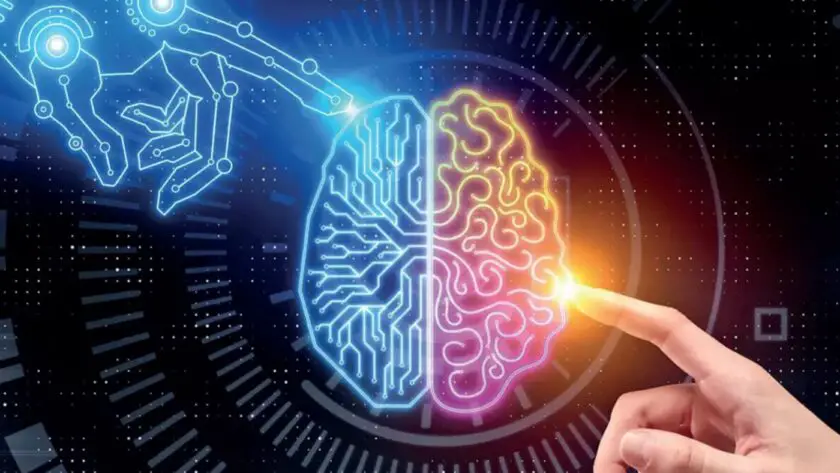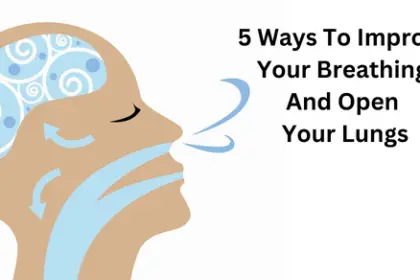There’s a new artificial intelligence tool called Chat GPT that is making waves on the internet. It’s the first free A.I. driven tool that you can engage with. It’s interesting, to say the least. It’s a bit robotic, and sometimes repetitive, but interesting to play with. Last year, the most searched dictionary term was ‘gaslighting‘ which is a tactic that narcissists use to control and manipulate those in their environment, most often their partners.
I decided to test the artificial intelligence and see what it said about Narcissism, so I asked the soulless machine what it thought. And oddly enough, the answer did give me new insight into narcissism which is something I have learned from by being in a romantic narcissistic relationship firsthand, as well as reading articles and watching videos about it online.
Below you’ll see the response from artificial intelligence, but after that you’ll see my response and what artificial intelligence is missing when it’s comes to narcissism. It’s not quite complete yet, but this article will be very helpful in you understanding narcissism. I promise. So keep reading, and scroll down further to see the full story. It’s a lot to unpack!
The Artificial Intelligence Answer to “What Causes A Person To Become Narcissistic” Below..
Narcissism is a complex personality trait that is thought to be caused by a combination of genetic, environmental, and social factors.
Some researchers believe that narcissism is partly inherited, as it tends to run in families. For example, a study of identical twins found that if one twin had narcissistic personality disorder, the other twin was more likely to also have the disorder. Additionally, scientists have found that people with a specific variation of a gene that regulates the activity of a neurotransmitter called serotonin are more likely to have narcissistic traits.
However, it’s also possible for someone to develop narcissism as a result of their environment. For example, if a child is consistently praised for their accomplishments and told they are superior to others, they may develop narcissistic tendencies. Similarly, if a child is neglected or abused, they may compensate by becoming self-centered and seeking attention and validation from others.
It’s also possible that a combination of factors could lead to the development of narcissism. For example, a child who has a genetic predisposition towards narcissism may develop the full-blown disorder if they grow up in an environment that consistently reinforces their sense of self-importance.
It’s worth noting that Narcissistic Personality Disorder(NPD) is considered a serious condition, but not all people with Narcissistic Traits have NPD, and in fact most people with Narcissistic Traits do not meet full criteria for NPD.
It’s also important to note that not all cases of Narcissistic Traits are negative, as it may have positive traits such as self-confidence, ambition, drive and motivation in some cases, but in cases of NPD or high narcissistic traits it can lead to major problems in personal and professional relationships.
Enter Human again… End of A.I.-speak.
My Human Takeaway/Issue With the A.I. Answer
The artificial intelligence A.I. answer was insightful in some ways. Personally, I didn’t know that the gene that regulated serotonin could influence someone’s narcissistic personality disorder. This was insightful for me, as I did not know this and had not read this prior. Insightful to know that narcissists need perhaps some brain chemistry rewiring and serotonin support, as well as environmental support for gene regulation.
The genetic connection to a narcissistic mentality that A.I. spit out however I am a bit concerned with, really, by the accuracy of. If you read that response and zoomed out a bit you’d recognize that the majority of the ‘reason for narcissism’ is ‘genetics’ more than anything. If the majority of the cause of narcissism is genetic, then what can we really do?
Let me ask you this, when someone says to you “This disease is genetic” what do you think? You think, well, there’s nothing that I can do. It’s genetic. In reality, this is simply not true. Genes do not dictate everything. What about cells? bacteria? the individuals mindset? Which creates a placebo or nocebo state..
This leads us to the epigenetic input, what is epigenetics you might ask?
Epigenetics is the study of heritable changes in gene function that occur without a change in the DNA sequence. These changes can affect how genes are expressed, or “turned on” and “turned off,” leading to differences in the traits and characteristics of different organisms.
Epigenetic changes can be caused by a variety of factors, including environmental factors such as diet, toxins, stress, and even social experiences. These changes can have a wide range of effects, including influencing a person’s risk for certain diseases and the way their body responds to various treatments.
Importantly, these modifications are reversible, meaning they can change over time and they can respond to change in environment, this feature makes epigenetics an important field of research that have potential to understand and treat diseases. Moreover, the epigenetics can have intergenerational effect, meaning the change in environment can lead to change in epigenetics of next generation, leading to heritability of certain traits or diseases.
It’s an active and rapidly growing field of research and the understanding of epigenetics is still in development but it already has many practical implications for human health and disease, such as cancer, neurological disorders, and mental health.
In other words, epigenetic control the gene expression. Two thirds (66%) of gene regulation is controlled by epigenetics. This means that the serotonin light switch that can be flipped on or off, which artificial intelligence blames on ‘genes’ actually does not take epigeneticss, a new field of study that educates us that genes are regulated by our ENVIRONMENT.
This is simply the serotonin aspect of the response that the A.I. spit out. There were other ‘genetic reasons’ for why someone develops into a narcissist, or ‘narcissistic personality disorder’ that the A.I. shared with me. But epigenetic science applies to all gene expression, turning these genes on or off which is dictated by the environment.
Gone are the days of ‘Well, it’s genes, there’s nothing we can do’ new research has shown us that this is simply not the case.
This leads us to the BIG problem with artificial intelligence. It’s based on ‘what the crowd thinks’ which you could call a ‘hive mind’ – what is that?
What is Hive Mind?
– a notional entity consisting of a large number of people who share their knowledge or opinions with one another, regarded as producing either uncritical conformity or collective intelligence.
This is I believe the problem with artificial intelligence is that as it gathers all of this information the information can be even more wrong than the soundbite of information it gathered to begin with.
What Truly Causes A Person To Be Narcissistic?
In my personal life experience of being in a relationship with a narcissist (who agreed that she was verbally out loud) it has been revealing. In my research, reading and passion for understanding the human brain and emotional puzzle we call life I personally feel and believe that unhealed trauma and pain lead to narcissistic traits, patterns and behaviors more than anything else. In fact, if you were to ask someone you know who displays traits of narcissism about their trauma or if they’ve forgiven those people, I’m quite certain you’ll get a cold shoulder. These people are willfully choosing to NOT forgive people in their lives which leads ot them carrying that pain and suffering longer in life, and to develop into a narcissist.
They become what they judge and hate because they don’t make peace with it first.
They become what they judge, and hate, because they are ate war with these things. When you are at war with your pain, your trauma, that will always win. Every single time. When you decide to be at peace, forgive and heal, you can then tend to these emotional wounds and begin to move forward with your life again. Grow into the man or woman that you were meant to be. Not the replayed version of your mother, or father, or grandparent who abused you with their narcissistic ways.
Watch This Video To Learn More About The 3 Things You Need To Know About Narcissists:
Recommended Reading:
Revealed: The 3 Biggest And Most Dangerous Traits That Cause Someone To Develop Into A Narcissist
10 Recognizable Traits Of A Narcissist You Need To Know
The Current Limitations Of Artificial Intelligence
Just for fun I asked artificial intelligence if it could be wrong, just to see if I could get the source of my information, the inspiration for this story to possibly agree with my perspective, and the answer in a nutshell is was yes, surprisingly. Thankfully artificial intelligence doesn’t have an ego, yet at least.
If you want to read it’s response here it is, to understand the limitations of A.I. a bit further. It turns out, at least artificial intelligence knows it can be wrong.
Yes, artificial intelligence (AI) systems can be wrong. The accuracy of an AI system depends on the quality of the data it is trained on, as well as the design and implementation of the algorithm itself.
If the training data is not representative of the real-world scenario the model will be used in, the model’s predictions may be inaccurate. Similarly, if the model is not properly validated or is overfitting to the training data, it may perform poorly on unseen data.
Additionally, as AI systems make predictions based on patterns they find in the data they’re trained on, they can make errors or mistakes that might not make sense to a human. For example, image recognition systems can be easily fooled by images with added noise, or adversarial examples that are crafted to mislead the model.
Moreover, AI systems can be prone to bias if the training data contains bias, the algorithm is designed with the bias or the decision-making process is not considering certain group of people, it can lead to errors that disproportionately affect certain groups of people.
It’s important to be aware of these limitations and to continuously monitor and improve AI systems to minimize the chance of errors. This can include techniques like active learning, which allows an AI model to continue learning from new data even after it’s been deployed, or using techniques like counterfactual analysis to understand the reasons behind an AI system’s predictions.
It’s also important to have explainable AI (XAI) approach, to understand the rationale behind AI predictions and to ensure that decision made by AI is human interpretable and ethically sound.





